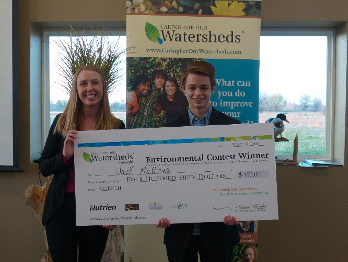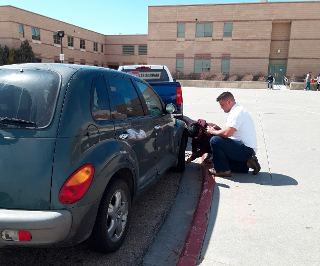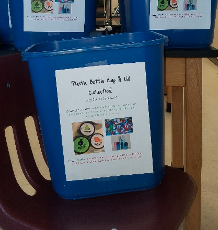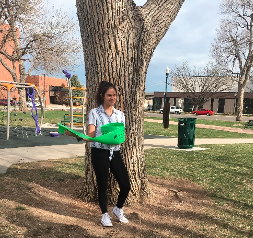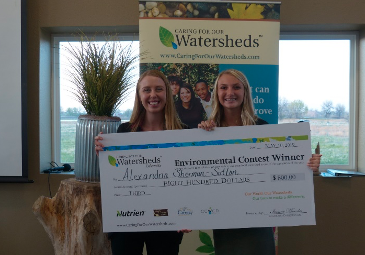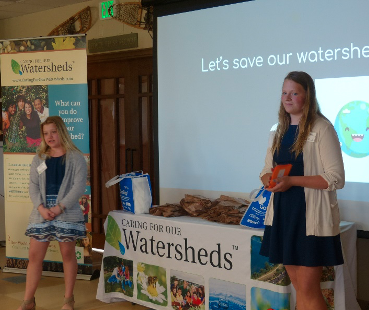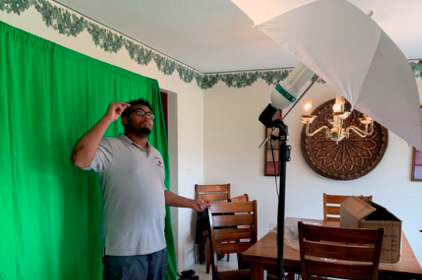2019, CINCINNATI, OH, UNITED STATES
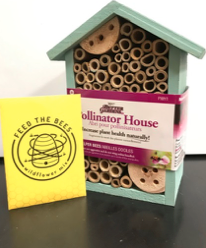
After numerous technology and scheduling issues, the Buzzing with Biodiversity project was a success! The plan was subject to change from the beginning, but the goal of spreading awareness and action throughout the community did not. Thanks to the Caring for our Watersheds project, there in now a widespread knowledge of the importance of pollinators in Wyoming Ohio, and thanks to the project funding, Wyoming is likely to become a hotspot for botanical biodiversity in the upcoming summer and for many summers to come. Multiple unexpected changes were made, but these changes all have one thing in common: they increased the impact and efficiency of the project.
Samuel Mota and Lucas Plante’s plan had always started with education of the importance of pollinators within Wyoming High School, but achieving the goal of widespread action through the school was unexpected. It seemed that everywhere the project was mentioned, people were excited to help. This was consistent from presentation to classroom, however the expected participation from the pamphlet was low. To make sure that all the bee houses and seed packets went to good use and were not wasted, A few bee houses were put in the front of Mrs. Majors’ classroom with seed packets to go with them and a message was written on the board encouraging students to take them home and use them in their own yards. To much surprise, by the end of the day, not only had the bee houses from the board been taken home, but all eighteen that had been brought in were gone.
To see this much participation from the students was astounding and brought about the final change that was made to the plan. It was not expected that all recipients of the pamphlet that was to be handed out would request seed packets, but after so many were given out in the classroom, there were not enough remaining to be able to assure that all of those who requested seed packets would receive them. Subsequently the pamphlet part of the plan was cancelled and taken off the budget. This also solved the problem of having no simple way of being contacted by all who wanted seed packets. The remainder of bee houses will go to those who requested at the presentation, several teachers at Wyoming high school, and Gorman Heritage Farm. The goals of educating the Wyoming community and encouraging action throughout it were achieved.


